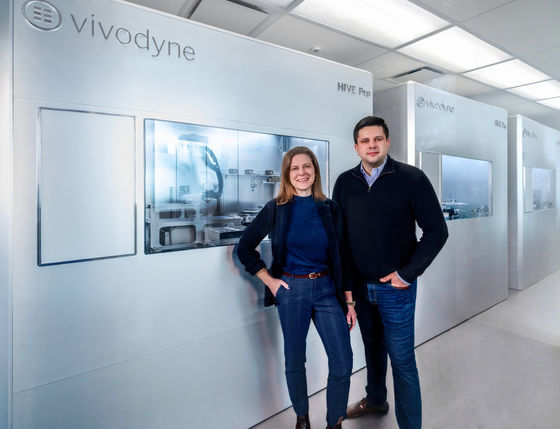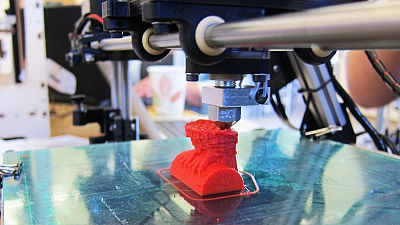Vivodyne uses AI and robots to grow human tissue in the lab to discover and develop new drugs

Vivodyne, a startup that aims to use an AI and robotics platform to grow human tissue and streamline the inefficient and challenging animal testing process for drug discovery, has announced that it has raised $40 million in funding.
Vivodyne to Replace Animal Testing With $40 Million Funding to Reverse 95% Clinical Trial Failure Rate
Vivodyne raises $40 million in funding round led by Khosla Ventures
https://www.axios.com/pro/biotech-deals/2025/05/29/vivodyne-raises-40m-drug-testing-human-tissue
Vivodyne's official X (formerly Twitter) account announced on May 29, 2025 that it had raised $40 million in Series A funding. In the announcement, Vivodyne said, 'We are expanding our AI and robotics-powered platform to replace animal testing with human-relevant data at unprecedented scale, helping the world's largest pharmaceutical companies realize more predictive insights and improved clinical trial success rates.'
Vivodyne has raised $40 million in Series A funding led by @khoslaventures with participation from new investors Lingotto, Helena, Fortius Ventures and existing investors Kairos Ventures, CS Ventures, Bison Ventures and MBX Capital.
— Vivodyne (@vivodyne) May 29, 2025
We're scaling our AI and robotics-powered… pic.twitter.com/NUeRfiNfgN
According to Vivodyne, while preclinical testing of animal diseases is routine in the biotechnology industry, there is a 95% chance that treatments tested in animal models will fail in human clinical trials.
This is due to the superficial similarities between animal models and human diseases, making them less predictable. Vivodyne, on the other hand, has the potential to significantly improve the success rate of less reliable animal models and accelerate drug discovery by conducting large-scale tests using ' organoids ,' which are human tissues grown in a lab.
In addition, the U.S. Food and Drug Administration (FDA) has announced plans to phase out animal testing requirements in drug development by April 2025, and Vivodyne plans to use this as a tailwind to further expand its scale.
'Vivodyne is fundamentally changing the way drugs move from the lab to clinical trials,' said Andrei Georgescu, CEO and co-founder of Vivodyne. 'A model that can only predict 5% is no longer a model. But we are redefining success in drug discovery by overcoming limitations that have held back scientific progress for decades.'
Vivodyne Chief Operating Officer Julie O'Shaughnessy (left) and Georgescu (right).

Vivodyne is raising $38 million in a seed round in 2023. With this funding, Vivodyne plans to open a 23,000-square-foot (about 2,136 square meters) fully robotic laboratory in South San Francisco, California, to significantly enhance its preclinical testing process.
'Robotics and AI are already beginning to fundamentally change the medical landscape, and Vivodyne is paving the way,' said Vinod Khosla, founder of Khosla Ventures, which led the Series A investment round. 'By leveraging these two cutting-edge technologies, Vivodyne can automatically grow and test more than 100,000 different human tissues in under two weeks, enabling pharmaceutical companies to gain human-equivalent insights before investing millions in clinical trials.'
Related Posts:







